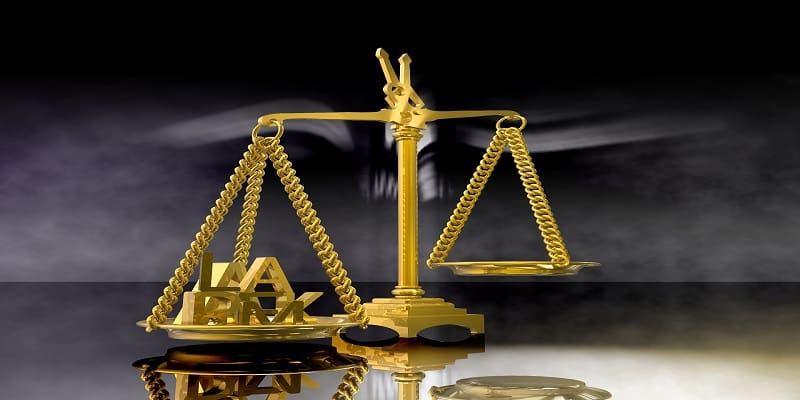Are you confused about the roles of an accountant and a bookkeeper? Wondering what sets them apart and why their distinct expertise is crucial for your business’s financial success? Look no further! In this comprehensive guide, we’ll unravel the mystery behind these two professions, shedding light on their unique responsibilities and skills and how they work together seamlessly. Whether you’re a seasoned entrepreneur or just starting out in the world of finance, join us on this enlightening journey as we explore the distinction between an accountant and a bookkeeper, demystifying their roles to empower you with the knowledge needed to make informed decisions for your company’s financial health.
Introduction
An accountant and a bookkeeper are two very important roles in any business. They both perform essential financial tasks, but there are some key differences between the two.
An accountant is typically responsible for more strategic financial planning and analysis, while a bookkeeper focuses more on the day-to-day recording of financial transactions. An accountant may also provide advice on tax planning and compliance, whereas a bookkeeper generally does not offer tax advice.
Both roles are critical to the success of any business, so it’s important to understand the distinction between an accountant and a bookkeeper. This guide will help you better understand the different responsibilities of each role and how they can work together to support your business.
Who is an Accountant?
An accountant is a professional who helps businesses and individuals organize and maintain their financial records. They may also prepare tax returns, audit financial statements, and advise on financial matters.
Bookkeepers, on the other hand, are responsible for recording and categorizing all of a business’s financial transactions. This includes sales, purchases, receipts, and payments. While bookkeepers do not need to be certified, many accountants are certified public accountants (CPAs).
Both accountants and bookkeepers are important members of a business’s finance team. However, their roles are different. An accountant’s job is more strategic, while a bookkeeper’s job is more tactical.
Who Is a Bookkeeper?
A bookkeeper is responsible for recording and categorizing a company’s financial transactions. This includes sales, purchases, receipts, and payments. A bookkeeper is usually not responsible for preparing financial statements or tax returns but may be responsible for reconciling bank statements and preparing trial balances.
An accountant is responsible for all aspects of a company’s financial statements, including the preparation of tax returns. An accountant may also provide other services such as auditing, budgeting, and cash flow analysis.
Difference Between an Accountant and a Bookkeeper
When business owners think about accounting and bookkeeping, they often lump the two together and assume they are one and the same. But there is a big difference between an accountant and a bookkeeper—albeit a subtle one. The main distinction has to do with the level of education and experience each professional possesses.
An accountant is someone who has earned a degree in accounting from an accredited college or university. In addition to completing coursework in financial accounting, management accounting, auditing, and tax law, accountants must also pass the Uniform CPA Examination. This exam is administered by the American Institute of CPAs (AICPA) and covers a broad range of topics related to accounting practice. Once they have passed the exam and met all other requirements, accountants are granted a CPA license, which allows them to provide a wide range of services, including tax preparation, auditing, and financial consulting.
Bookkeepers, on the other hand, do not need to possess a college degree or pass any exams. However, most bookkeepers have received some formal training in basic accounting principles through courses offered at community colleges or business schools. Many bookkeepers also possess an associate’s degree or certificate in bookkeeping or accounting. While bookkeepers are not licensed like CPAs, they can still perform many important functions related to financial record-keeping and reporting.
So what exactly do these two professionals do? Accountants are responsible for providing advice on financial matters, preparing
Qualifications for Each Role
When it comes to running a business, it is important to have a clear understanding of the distinction between an accountant and a bookkeeper. Both roles are critical to the success of any organization, but they each have different qualifications and responsibilities. Here is a comprehensive guide to the qualifications for each role:
Accountant:
A bachelor’s degree in accounting or a related field
-CPA certification
At least 5 years of experience in accounting or auditing
Strong analytical and problem-solving skills
Excellent communication and interpersonal skills
Bookkeeper:
A high school diploma or equivalent
2+ years of experience in bookkeeping or accounting
Proficiency in QuickBooks or another accounting software program
Attention to detail and strong organizational skills
Good communication and interpersonal skills
Responsibilities of Each Role
An accountant is responsible for ensuring the accuracy of an organization’s financial statements as well as preparing and filing taxes. A bookkeeper, on the other hand, is responsible for recording all of the financial transactions of an organization.
While both roles are important in keeping an organization’s finances in order, they are quite different. An accountant typically has more education and experience than a bookkeeper and, as such, is better equipped to handle complex financial tasks. However, a bookkeeper is essential to maintaining accurate records of all financial transactions, which is necessary for an accountant to do their job effectively.
Conclusion
To conclude, accounting and bookkeeping are two distinct activities that require different skill sets. An accountant is responsible for the overall financial health of an organization, while a bookkeeper handles the day-to-day recording of transactions. Both professions require knowledge of accounting standards and principles as well as detailed record-keeping methods to ensure accuracy. By understanding the distinctions between an accountant and a bookkeeper, you can better determine which professional would be the best fit for your business’s needs.

































